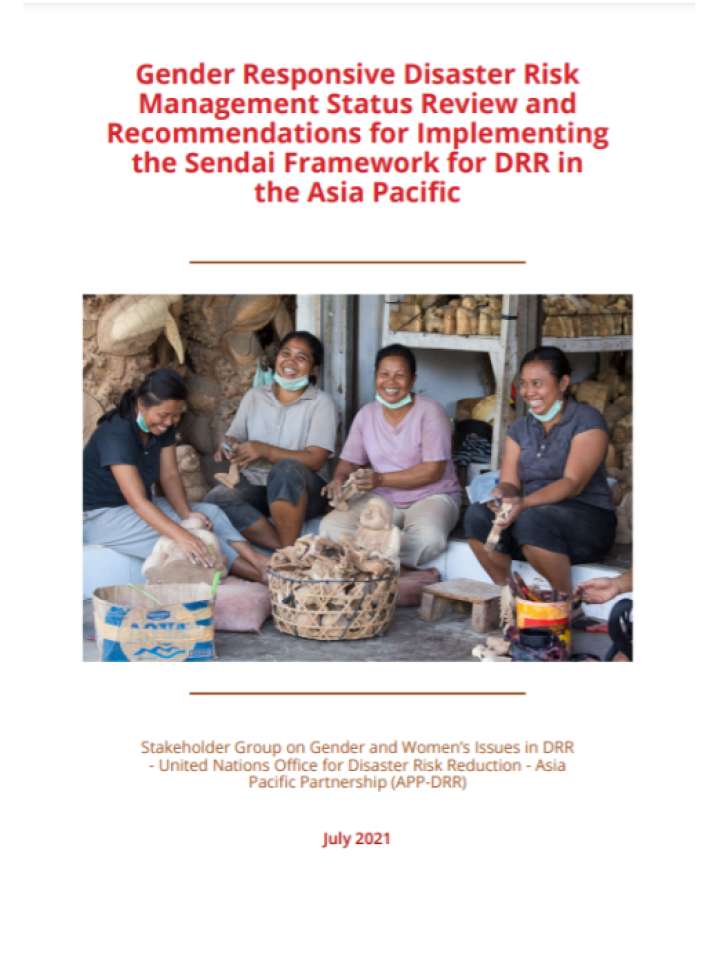Gender responsive Disaster Risk Management status review and recommendations for implementing the Sendai Framework for DRR in the Asia Pacific
This review is part of the Gender Stakeholder Group’s periodic updates to the Asia Pacific Partnership of the United Nations Office for Disaster Risk Reduction (UNDRR). It was carried out by Duryog Nivaran on behalf of the Group with technical support from the Asian Disaster Preparedness Centre and Duryog Nivaran, and inputs from UNDRR and UN Women for consultations. The Gender Stakeholder Group is comprised of representatives of national governments, bilateral agencies, United Nations agencies, and the Inter-Agency Standing Committee’s regional working group on Gender in Humanitarian Action, civil society organizations, and individuals in the region who are promoting gender-responsive disaster risk reduction.
The review finds that institutional coordination and interrelationships between the mandated institutions for Disaster Risk Management (DRM) and women/gender in development in many countries are far below optimal levels. Many of the national Gender/Women and Development strategies do not consider DRM aspects, women’s rights work rarely capture access to information (early warning and other), displacement and post disaster recovery aspects. The underlying premise needs to change to one where there is greater clarity on roles and responsibilities, the core mandate and expectations of DRM focal institutions, as well as the responsibilities of national and provincial development institutions, and Women’s institutions to enable the effective realisation of the Sendai Framework outcomes on gender equality and women’s empowerment and leadership. This way, gender equality and social inclusion outcomes in DRM become co-benefits of the broader gender equality and development commitments of the governments in the national development priorities, Sustainable Development Goals, and the commitments to the Convention on the Elimination of All Forms of Discrimination Against Women.
Explore further
